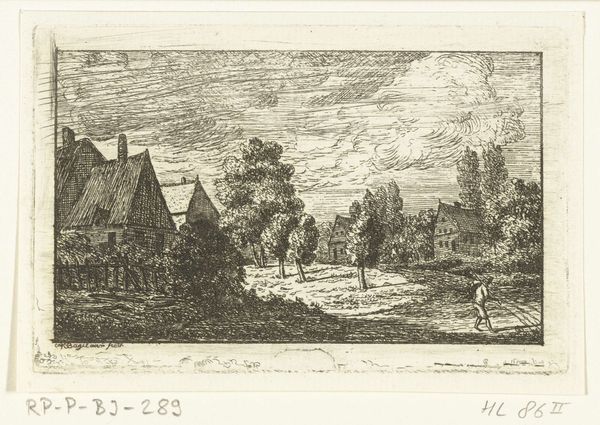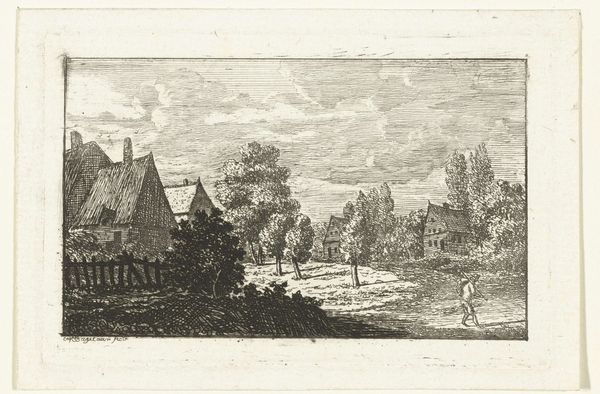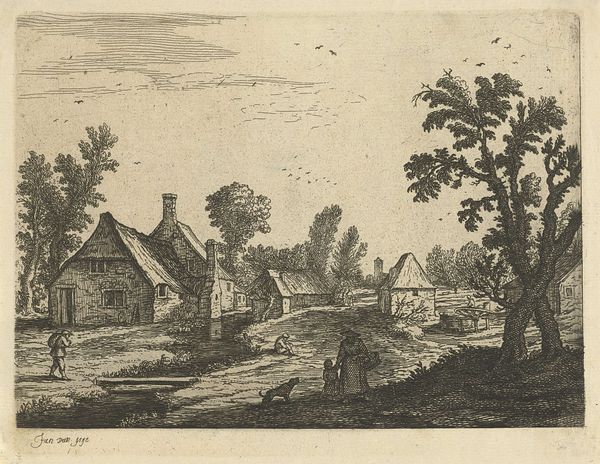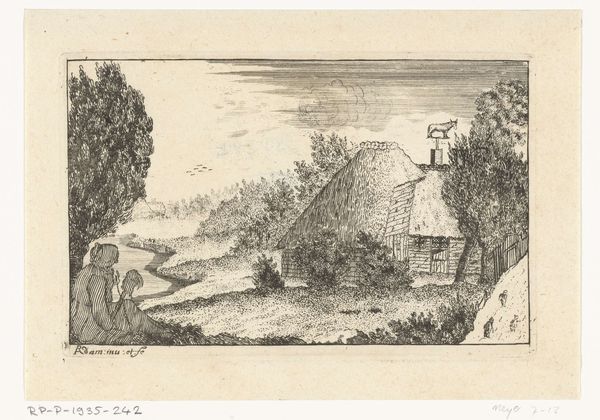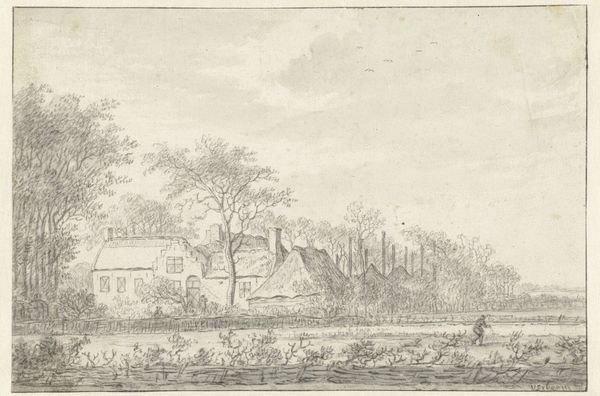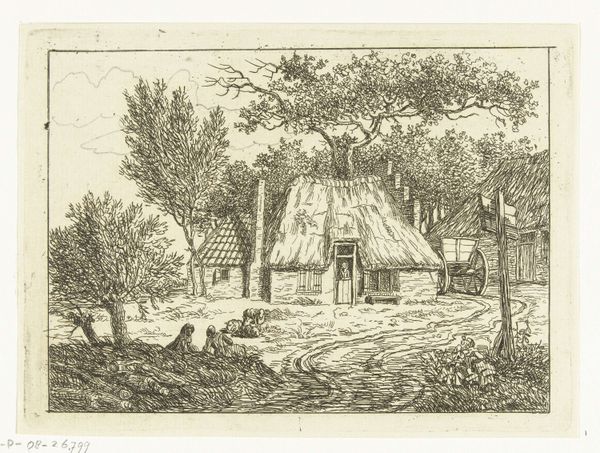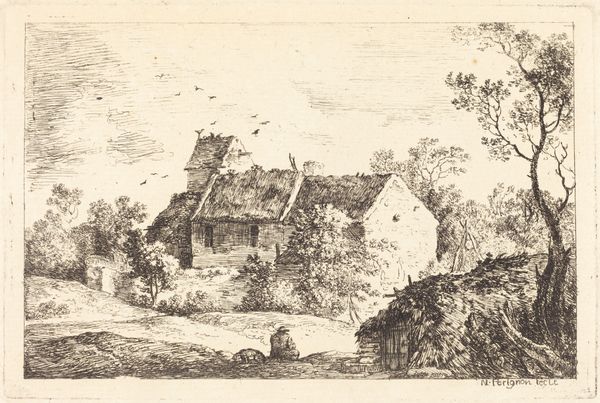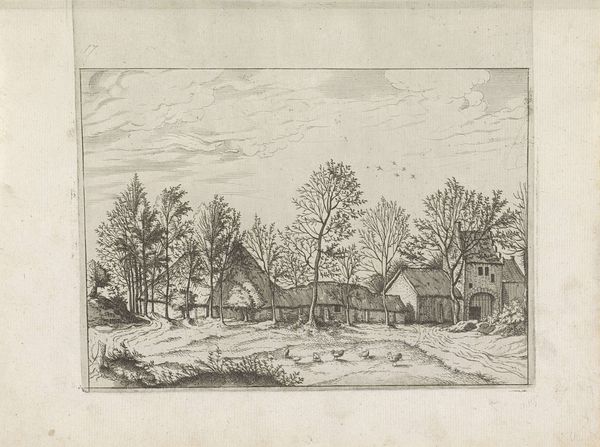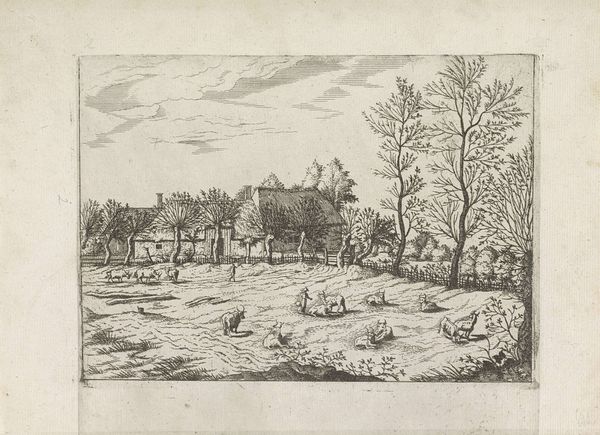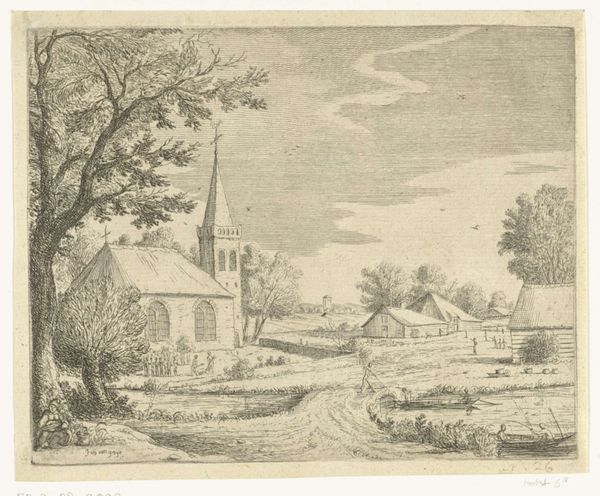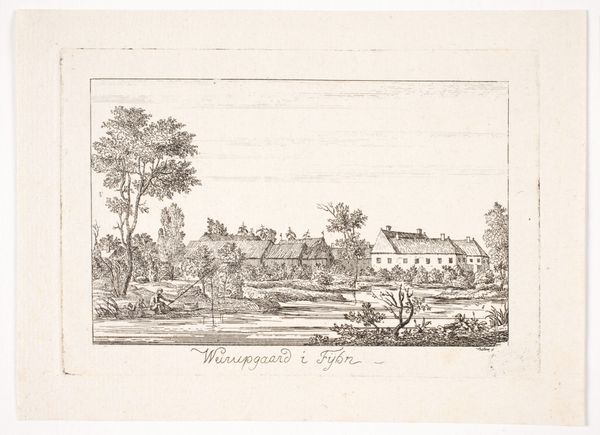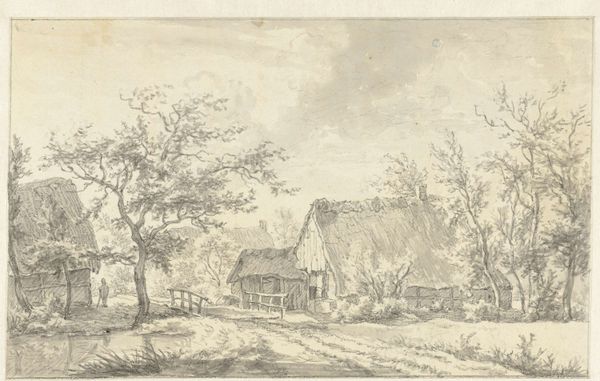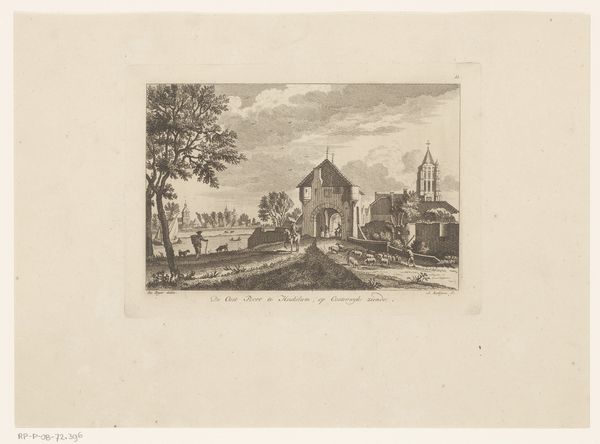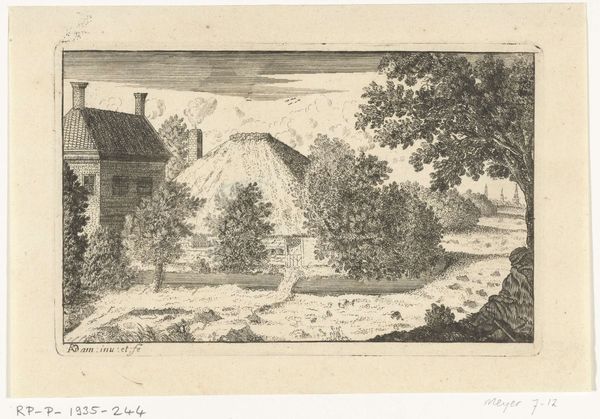
drawing, etching, ink
#
drawing
#
mechanical pen drawing
#
pen illustration
#
pen sketch
#
etching
#
pencil sketch
#
old engraving style
#
landscape
#
personal sketchbook
#
ink
#
romanticism
#
pen-ink sketch
#
pen work
#
sketchbook drawing
#
storyboard and sketchbook work
Dimensions: height 114 mm, width 148 mm
Copyright: Rijks Museum: Open Domain
Johannes Alexander Rudolf Best etched this view of a castle moat and walls sometime around 1814. Water, a symbol of purification and transition, dominates the scene. This motif appears throughout art history—from ancient Egyptian depictions of the Nile, a source of life, to Renaissance paintings where rivers often marked the boundaries between the earthly and the divine. Even today, we see how water is used symbolically across cultures, such as in baptismal rites denoting spiritual cleansing. Here, in Best's etching, the moat serves both as a protective barrier for the castle and a reflective surface. Notice the way the still water mirrors the sky, creating a dreamlike atmosphere, a liminal space where reality and reflection blur, triggering a subconscious pull toward introspection and the mysteries that lie beneath the surface of our consciousness. As we gaze into this tranquil scene, consider how our ancestors and cultural heritage are continually echoed through images.
Comments
No comments
Be the first to comment and join the conversation on the ultimate creative platform.
